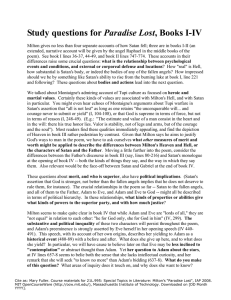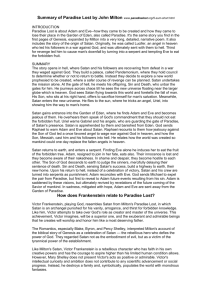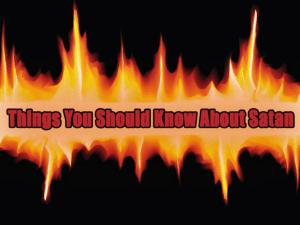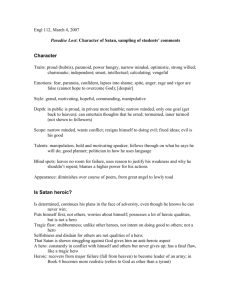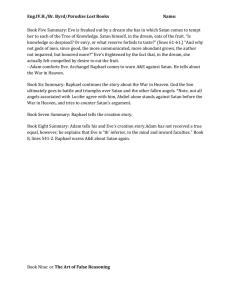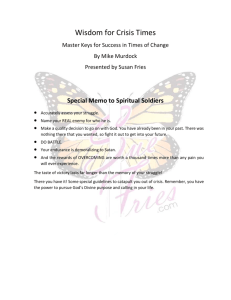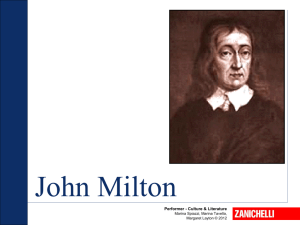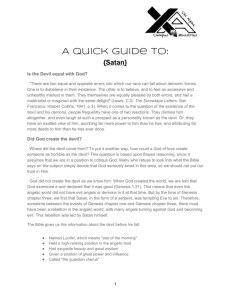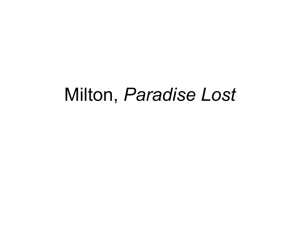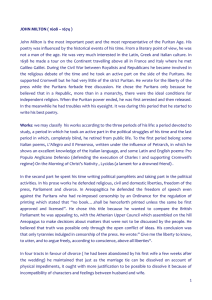MILTON KEY.doc
advertisement
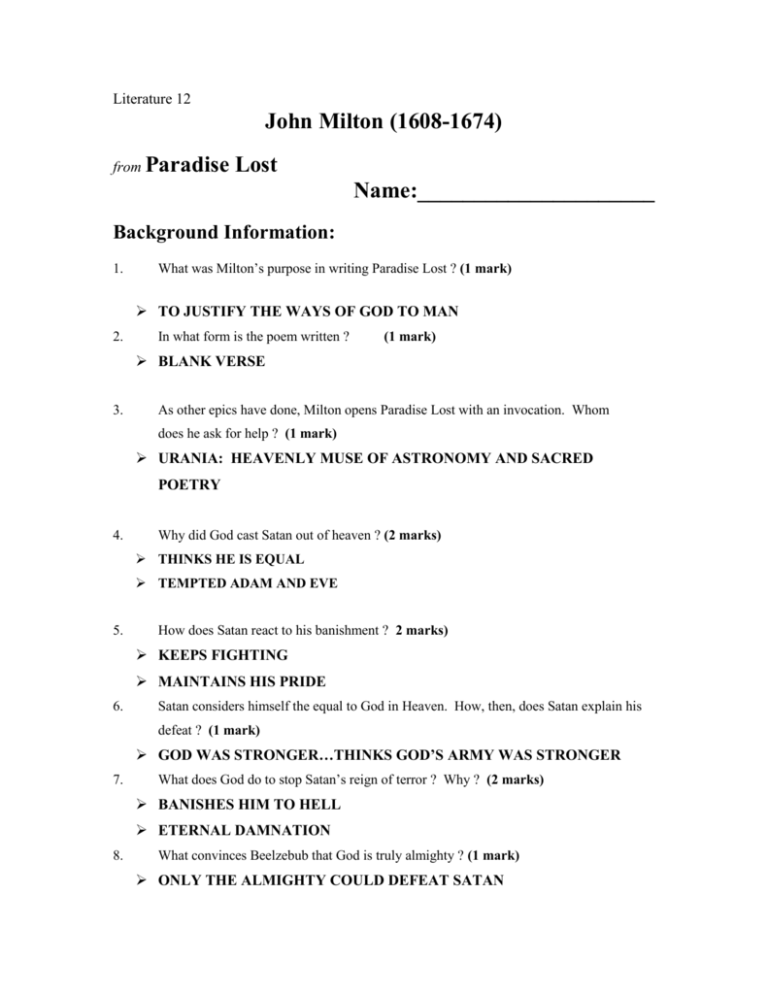
Literature 12 John Milton (1608-1674) from Paradise Lost Name:_____________________ Background Information: 1. What was Milton’s purpose in writing Paradise Lost ? (1 mark) TO JUSTIFY THE WAYS OF GOD TO MAN 2. In what form is the poem written ? (1 mark) BLANK VERSE 3. As other epics have done, Milton opens Paradise Lost with an invocation. Whom does he ask for help ? (1 mark) URANIA: HEAVENLY MUSE OF ASTRONOMY AND SACRED POETRY 4. Why did God cast Satan out of heaven ? (2 marks) THINKS HE IS EQUAL TEMPTED ADAM AND EVE 5. How does Satan react to his banishment ? 2 marks) KEEPS FIGHTING MAINTAINS HIS PRIDE 6. Satan considers himself the equal to God in Heaven. How, then, does Satan explain his defeat ? (1 mark) GOD WAS STRONGER…THINKS GOD’S ARMY WAS STRONGER 7. What does God do to stop Satan’s reign of terror ? Why ? (2 marks) BANISHES HIM TO HELL ETERNAL DAMNATION 8. What convinces Beelzebub that God is truly almighty ? (1 mark) ONLY THE ALMIGHTY COULD DEFEAT SATAN 9. Why does Satan say that “The mind is its own place”? (1 mark) DEFIANCE…MAKE THE BEST OF A BAD SITUATION 10. Satan says that (ll. 258-259), “Here at least / We shall be free…” Why is Satan not free ? 1 MARK NO … HE HAS TO TEMPT HUMANS … HE CANNOT BE WITH THEM AND BE FREE Vocabulary: The following words have Latin or Greek origins. Define each, and give its origin. 11. 12. Transcendent: Latin…means that God is completely outside of and beyond the world Abyss: Greek the bottomless gulf, pit, or chaos of the old cosmogonies 13. Aspire: Latin To have a great ambition or ultimate goal; desire strongly: 14. Perdition: Latin Loss of the soul; eternal damnation. 15. Apostate: Greek One who has abandoned one's religious faith, a political party, one's principles, or a cause. Multiple Choice: 16. To judge from the opening 264 lines, Book I of Paradise Lost chiefly tells of A. the fall of Adam and Eve B. God’s displeasure with humans C. God’s creation of Adam and Eve D. Satan and the fallen angels 17. In these opening lines, we learn a great deal about Satan, including all of the following except A. his motives for revolting against God B. his specific intention to corrupt Adam and Eve C. his plans for the future D. the horrible nature of Hell and Damnation 18. These opening lines contain the poet’s reasons for concentrating first on Satan – namely, that Satan A. seduced Adam and Eve B. had helped create Heaven and Hell C. had more to do with human nature than God had D. was the most extraordinary actor in the epic struggle of human beings 19. The first 264 lines tell us much, though indirectly, about God, and chiefly through A. God’s actions B. the poet’s explanatory comments C. Satan’s remarks D. quotations from the Bible 20. The first ten lines of the poem contain examples of all the following except A. alliteration B. Biblical allusions C. apostrophe D. simile
